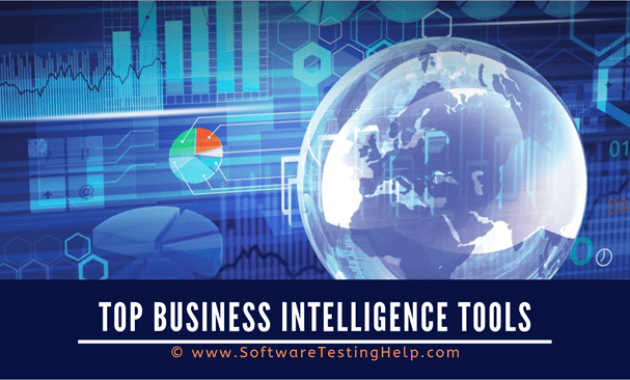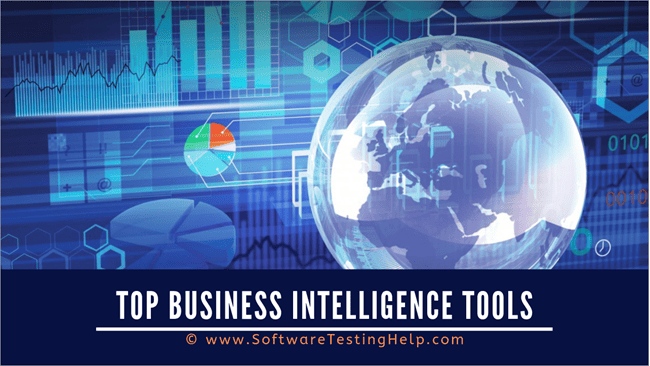
How 8 Business Intelligence Tools To Watch in 2025: Navigating the Data-Driven Future
The business landscape is rapidly evolving. Data is the new currency. Business intelligence (BI) tools are the refineries that transform raw data into actionable insights. This article explores eight business intelligence tools to watch in 2025. These tools are poised to shape the future of data analysis and decision-making. They offer advanced features and capabilities. They are critical for businesses to thrive in a competitive environment.
The Rise of Business Intelligence
Business intelligence has become indispensable. Companies now rely on data-driven strategies. BI tools provide the means to collect, analyze, and visualize data. This helps businesses understand trends, optimize operations, and make informed decisions. The demand for sophisticated BI solutions is growing. The market is constantly innovating. The tools are becoming more powerful and user-friendly.
Key Trends Shaping the BI Landscape
Several key trends are driving the evolution of business intelligence. Cloud-based BI solutions are gaining popularity. They offer scalability and accessibility. Artificial intelligence (AI) and machine learning (ML) are transforming data analysis. They automate tasks and provide predictive insights. Data visualization tools are becoming more interactive and intuitive. They make complex data easier to understand. Data governance and security are also becoming more critical. Businesses must protect sensitive data.
Eight Business Intelligence Tools to Watch in 2025
1. Power BI
Microsoft Power BI continues to be a leader in the BI space. It offers a comprehensive suite of features. Power BI provides data visualization, data preparation, and business analytics. Its integration with other Microsoft products is seamless. Power BI is ideal for businesses of all sizes. It is easy to use and offers powerful capabilities. Power BI’s AI-powered features are also improving. They provide automated insights and recommendations. [See also: Power BI: A Deep Dive into Its Features and Capabilities]
2. Tableau
Tableau is known for its data visualization capabilities. It allows users to create interactive dashboards and reports. Tableau is a favorite among data analysts and business users. It offers a user-friendly interface and a wide range of data connectors. Tableau is constantly innovating. It is adding new features and integrations. This helps users explore and understand their data. Tableau is a strong contender in the business intelligence market.
3. Qlik Sense
Qlik Sense offers a unique associative data modeling engine. It allows users to explore data in a flexible way. Qlik Sense is known for its data discovery and self-service analytics. It is well-suited for businesses that need to empower their users. They need to explore data independently. Qlik Sense provides a powerful platform. It is suitable for complex data analysis and reporting. Qlik Sense is an important business intelligence tool.
4. Looker (Google Cloud)
Looker, now part of Google Cloud, is a modern BI platform. It focuses on data modeling and governance. Looker is ideal for businesses with complex data requirements. It offers a robust set of features. Looker helps businesses build a single source of truth. It provides consistent data across their organization. Looker is a key player in the business intelligence world.
5. ThoughtSpot
ThoughtSpot is known for its search-driven analytics. It allows users to ask questions in plain language. ThoughtSpot then generates insights. This makes data analysis accessible to a wider audience. ThoughtSpot is a good solution for businesses. They want to empower their employees with data. ThoughtSpot is a user-friendly business intelligence tool.
6. Domo
Domo is a cloud-based BI platform. It offers a complete suite of features. Domo provides data integration, data visualization, and collaboration tools. Domo is designed for businesses. They need a unified platform for their data. Domo offers a comprehensive solution. It helps businesses make data-driven decisions. Domo is a valuable business intelligence tool.
7. Sisense
Sisense focuses on embedded analytics. It allows businesses to integrate BI into their applications. Sisense is ideal for software vendors and businesses. They want to provide data insights to their customers. Sisense offers a powerful platform. It enables embedded analytics and data visualization. Sisense is a strong choice in the business intelligence market.
8. Yellowfin
Yellowfin is a BI platform. It offers a range of features. Yellowfin focuses on data storytelling and collaboration. It is well-suited for businesses. They want to share their insights effectively. Yellowfin provides a user-friendly interface. It enables data visualization and reporting. Yellowfin is a noteworthy business intelligence tool.
The Future of Business Intelligence
The future of business intelligence is bright. AI and ML will play a larger role. They will automate tasks and provide more advanced insights. Data visualization will become even more interactive and intuitive. Self-service analytics will continue to grow. This will empower business users. Data governance and security will become more critical. Businesses must protect their data. The business intelligence tools landscape is constantly evolving. It is important to stay informed. The tools will help you make informed decisions.
Choosing the Right BI Tool
Selecting the right BI tool is crucial. Businesses should consider their specific needs. They should also consider their data sources. They should also consider their technical expertise. They must evaluate the features and capabilities of each tool. Consider the cost and scalability. Consider the ease of use and integration. Businesses can choose the right tool. This will help them achieve their business intelligence goals. [See also: How to Choose the Right BI Tool for Your Business]
The Impact of Business Intelligence in 2025
By 2025, business intelligence tools will be even more critical. They will enable data-driven decision-making. They will help businesses gain a competitive advantage. They will help businesses optimize their operations. They will allow businesses to understand their customers better. The tools will help businesses improve their profitability. The business intelligence tools are essential for success. They are crucial for businesses to thrive. They are crucial in the evolving digital landscape. The business intelligence tools will be essential for navigating the complexities of data. The business intelligence will be even more integral to strategic planning. The right business intelligence tools will give you an edge.
Conclusion
The business intelligence tools landscape is dynamic. Staying informed is key. The eight tools mentioned are significant. They are shaping the future of data analysis. Businesses should evaluate these tools. They should choose the ones that best fit their needs. They will be prepared for the data-driven future. They can leverage the power of business intelligence. The future is bright for businesses. They embrace data and insights. They will be equipped for 2025 and beyond.

